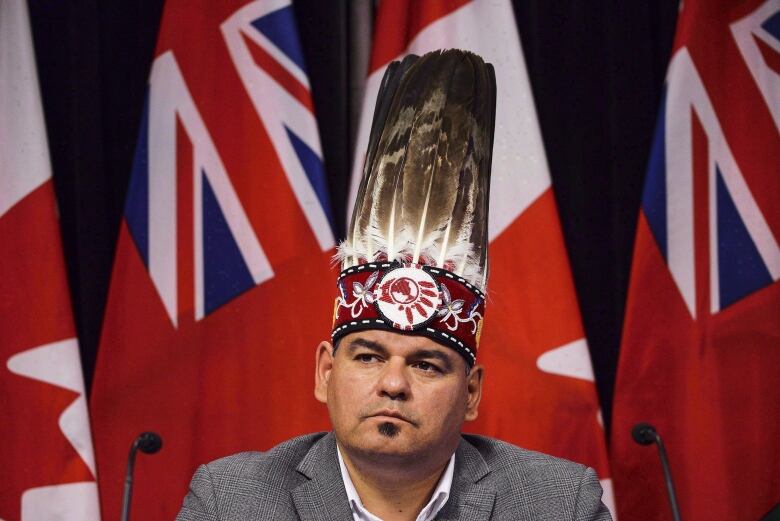'First Nations still very much an after-thought' for government, says Indigenous leader
June has been National Indigenous History Month since 2009

With the arrival of June comes the beginning of National Indigenous History Month across the country.
It's been nine years since the federal government adopted the designation after passing of a unanimous motion in the House of Commons.
But any celebration of progress since then is already being downplayed by some First Nations leaders.
"It's fine," says Anishinabek Nation Grand Council Chief Patrick Madahbee.
"A lot of times, you see these things declared official holidays or official recognition and it's good PR at the time, and over time, this stuff gets forgotten. But there is some recognition. There has been a little bit of a shift over the years, that First Nations issues are getting a little bit more attention than, I would say, 10 or 15 years ago."
Later this month will also mark the 10-year anniversary of then-Prime Minister Stephen Harper's apology to residential school survivors.
The federal government has an entire section on its website dedicated to the history of Indigenous people and culture, as well as of conflict between the land's original inhabitants and the Crown.
'Shedding a reflection back on Canada'
Ontario Regional Chief Isadore Day says recent actions by the federal government aren't matching up with promises made to reconcile with Indigenous people.
Day also acknowledges there have been advances over the past decade in the relationships between First Nations, government and Canadians.

He highlights the 94 Calls to Action in the 2015 Truth and Reconciliation Commission, gains in addressing the First Nation child welfare crisisand the federal government's promise to end all boil water advisories by 2021 as examples of that.
However, Day also brings up the Trudeau government's plan to purchase the highly debated Trans Mountain Pipeline a project Day points out is opposed by many First Nations "from B.C. to Atlantic Canada.
Day states that action proves "First Nations are still very much an after-thought in government policies and still burdened under the colonial Indian Act."
"I definitely will be taking the opportunity [of Indigenous History Month] to lift up the mirror and shedding a reflection back on Canada to say, 'Sorry, you are not doing a good enough job and we need to work together to get you on track to work towards a nation-to-nation relationship that is congruent with the words coming out of your mouth,'" says Day.
Madahbee is also heavily critical of the pipeline plan, saying it makes him question what National Indigenous History Month really means.
"The finance minister (Bill Morneau) is ready to cut this cheque for this thing what about cutting a cheque for seniors in this country? What about cutting a cheque for child care?" asks Madahabee.
"Instead of a pipeline, what about some water lines instead of these boil water advisories going on around the country instead of funding an international company? This whole era of reconciliation, a lot of it is just cheap talk. I think, in time, the Prime Minister is going to find that First Nations are not going to believe him."












_(720p).jpg)


 OFFICIAL HD MUSIC VIDEO.jpg)
.jpg)



























































































